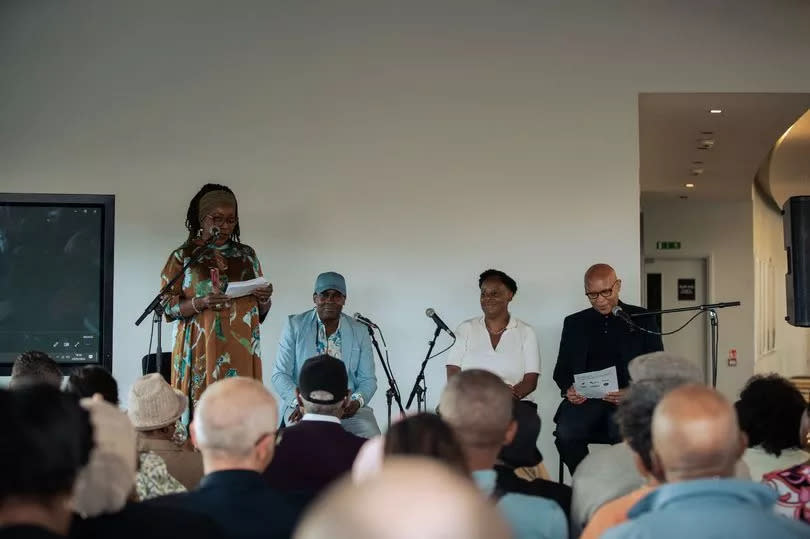The ambitious Bristol project aiming to create a racial equality manifesto

A thought-provoking exhibition, designed to spark city-wide conversations around race and inform a new grassroots-led manifesto on racial equality is currently at the Bristol Beacon. The ‘Race Cards: A Blue Print 4 change’ project, is just one of more than 200 events and projects that have been held in Bristol over the last year as part of the Bristol Bus Boycott 360 campaign.
With support from the Bristol Beacon and Bristol University, project curator Julz Davis collected the views of over 800 Bristolians on racial equality in our city today. The ‘Race Cards’ project is just one of many ways Julz aims to make Bristol the best city for people “of all colours, cultures and classes to live, work and play”.
The responses come from ordinary Bristolians from all walks of life. While collecting peoples’ views across different areas of the city, Julz found that education, inter-cultural exchange and connection and statues were some of the most dominant themes.
READ MORE: Meet the founder of Bristol music collective challenging the patriarchy
READ MORE: Paul Stephenson’s daughter's ‘pride’ at her father’s bravery
Julz, founder and chief of Curiosity UnLtd, said: “I’m working with the University of Bristol to crunch those responses into a manifesto, to point out what are Bristol’s priorities. Bearing in mind Bristol’s reputation with slavery and the colston statue and the St Pauls riots.
“Bristol has a really strong DNA when it comes to race, from electing Marvin as the first elected black mayor in Europe to the Bristol Bus Boycott informing the first Race Relations Act, but we are still a very unequal city.
“Bristol is the most diverse city in the South west. A third of young people in education are people of colour, Bristol is one of the best cities in the UK but at the same time we have these ridiculous gaps of inequality amongst extreme wealth sitting uncomfortably, juxtaposed against each other and that’s not good enough for a city like Bristol in my opinion.
“If you’re a young black man and you grow up in Bristol you have a better chance of going to prison than university. Education has an important role to play as well as the police do as well who have been the first to admit that they are institutionally racist and that’s come from our Chief Constable Sarah Crew who has held her hands up and wants to do something about it.
Sign up to receive daily news updates and breaking news alerts straight to your inbox for free here.
“Statues came up a lot and this is about the iconography of the city and how people see or don’t see themselves. People say that we need to see more statues or memorialisation named after our heroes and sheroes so we don’t forget them.
“Bristol is going through this growth spurt, everyday there is a new street or building coming up so it’s not about renaming, it’s about just naming.Some people might say is that it’s superficial and we don’t want to get locked into the idea that you change a name and suddenly the world becomes a better place but for my daughter who is seven years old at the moment, that name becomes normalised for her.
“Within that context we will create the race relations act, for the people, by the people, with the people. And we are going to start to have those conversations.”
Once the manifesto is drawn up it will be presented to the new council administration. Julz also hopes that the manifesto will be then used nationally to help inform a new Race Relations Act.
The Race Cards free exhibition can be viewed at the Bristol Beacon until July 4. More information on the exhibition can be found here and the Bristol Bus Boycott 360 campaign here.

 Yahoo News
Yahoo News 
